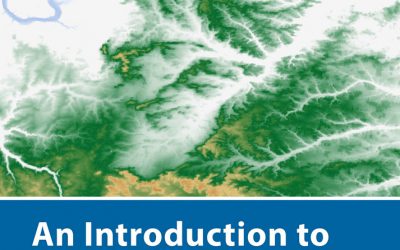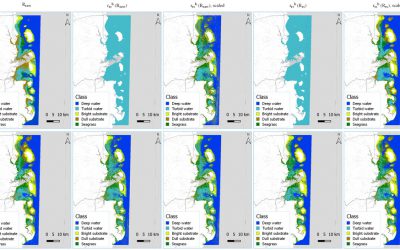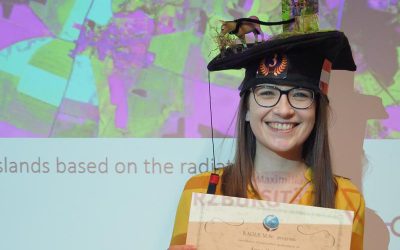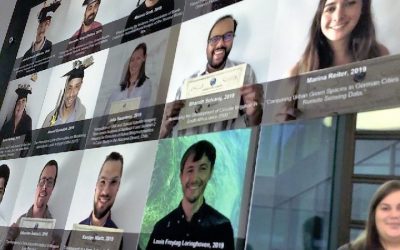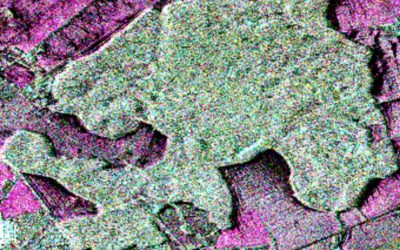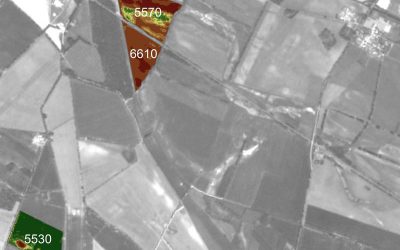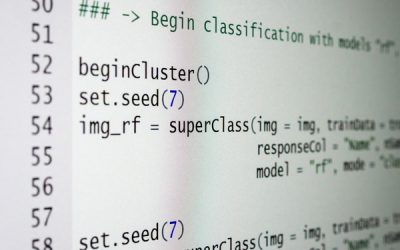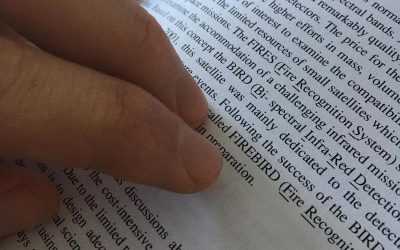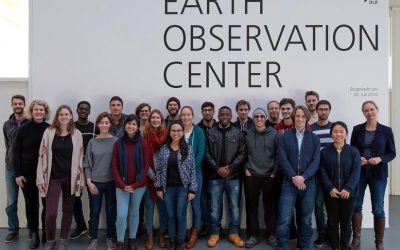Aim:
Within this course different methods to analyse point pattern statistically and conduct a spatial prediction are covered. Students will learn how to design such analysis, how to avoid caveats, troubleshoot errors and interpret the results.
Content
Different statistical methods will be applied for analysing spatial point patterns, such as vegetation samples or biodiversity related information. These results will be statistically predicted using methods such as GLM, GAM, Random Forest or MaxEnt. Implications of spatial point patterns as well as chosen environmental parameters will be discussed. All methods will be practically applied during the course using the programming language R. The needed pre-requisites are covered in the course “Applied Programming for Remote Sensing and GIS“.
Coding
Software
Techniques
Content
General Course News and Updates
new book by our lecturer “Intro to Spatial Data Analysis”
The upcoming book by our lecturer Jakob Schwalb-Willmann, Stefan Dech and Martin Wegmann on "Introduction to Spatial Data Analysis" with QGIS and first steps in R is available for pre-order - order now and get 30% discount. This textbook aims at students and...
M.Sc. defense by Benjamin Lee
Benjamin will defend his M.Sc. thesis " DEVELOPMENT OF A SEMI-ANALYTICAL MODEL FOR SEAGRASS MAPPING USING CLOUD-BASED COMPUTING AND OPEN SOURCED OPTICAL SATELLITE DATA" on Friday March 6th 10 am in room 1.009 OKW 86. from the abstract: "Seagrasses provide USD$2.28...
Anna Orthofer successfully presented her M.Sc. thesis
Anna Orthofer presented last Friday her M.Sc. thesis "Deriving Leaf Area Index and mowing dates for grasslands based on the radiative transfer model SLC and Sentinel 2 data" successfully and is our first EAGLE M.Sc. graduate in 2020. Congratulations!
EAGLE wall of fame – our graduates
All our graduated EAGLE students are shown on our wall-of-fame. Great way to see who studied when and what was the topic about. Some of them are already doing their PhD with us or other research organizations and two of these graduates just founded their own remote...
internship presentation by Henrik Fisser and Ronja Lappe
On Friday 24th of January at 10 am in room 1.009 OKW 86 the following two internship presentation will take place: Henrik Fisser: "Into the Uncertain - Noise Quantification of Sentinel-2 Water Signal in Dependence of Atmospheric Correction Methods"and some details...
M.Sc. defense by Anna Orthofer
Anna Orthofer will present her M.Sc. thesis on Friday 7th of February at 10 am in room 1.009 OKW 86. Her M.Sc. was about "Deriving Leaf Area Index and mowing dates for grasslands based on the radiative transfer model SLC and Sentinel 2 data." More details from the...
Internship and MSc idea presentations
On Friday 10th of January the following presentations will take place in OKW86, room 1.009 from 10am onwards. Ojo Segun Adewale:Internship: Prediction of Gross Domestic Product using Remote Sensing Data (A case study of Brazil). Thesis Idea: Application of Remote...
M.Sc. Idea presentation by Nina Gnann and internship by Basil Tufail and Malin Fischer
Nina, Malin and Basil will present their M.Sc. idea and internships on Friday 20th of December in room 1.009 OKW 86. Ninas' envisioned M.Sc. is "Plastic waste detection assisted by artificial intelligence". Basil internship is titled: "Global training dataset for...
M.Sc. idea presentation by Felix Glasmann
Felix Glasmann is presenting on Friday, 13th of December at 10am in room 1.009 OKW 86, his M.Sc. idea "Potential of the Firebird Mission for the Detection of Gas-flaring Activity". In times of worldwide phenomena like ‘Fridays for Future’ or ‘Extinction Rebellion’ it...
EAGLEs at DLR EOC
Our 2019 EAGLEs visited the DLR-EOC and learned a lot about current earth observation research at DLR. Many talks as well as discussions with PhD, Postdocs and teamleaders were organized by Prof. Claudia Kuenzer, head of the landsurface department and professor in...

